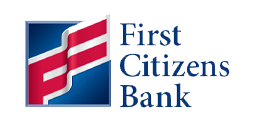






Making a Difference in People’s Lives
JULY 1, 2021 TO JUNE 30, 2022
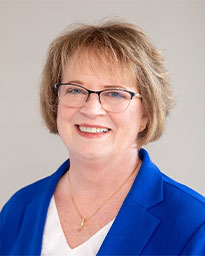
Dear friends,
As we continue to navigate an ever-changing world in the wake of a global pandemic, I’m delighted to share with you that Monarch continues to remain a strong, stable organization.
Our mission of providing hope and support to people with intellectual and developmental disabilities, mental illness and substance use disorders remains at the forefront of every decision we make.
This year has been an exciting one for Monarch. We have launched new services in areas that need them most, with the addition of Mobile Integrated Care Clinic services in rural counties in Eastern North Carolina. We have added a new psychosocial rehabilitation program in Wilmington that will provide a place of support and community engagement for people living with serious and persistent mental illness. We continue to look for ways to support the communities we serve and welcome the opportunities for program expansion that allow us to bring new services to people who need them most.
Monarch, like many health care organizations, faces unprecedented hiring and staffing challenges and throughout the year we have asked you – our Monarch families and friends – to help us advocate for sustained, increased wages for direct support professionals who provide important care to the people we support. While some strides have been made, these conversations will continue, and the issue will remain a priority in the year ahead as we work hard to share the impact that our incredible staff has on the lives of so many across North Carolina. Thank you for answering our call to reach out to legislators. We’ll be asking you to do so again in the future!
As you read the stories shared in this 2022 Impact Report, I know you will be moved by the work that Monarch does and how it shapes the lives of the people and families we support. We cannot do this work without your support and commitment as well. Thank you for being a part of the Monarch family.
Sincerely,![]()
Peggy S. Terhune, Ph.D., MBA, OTR/L
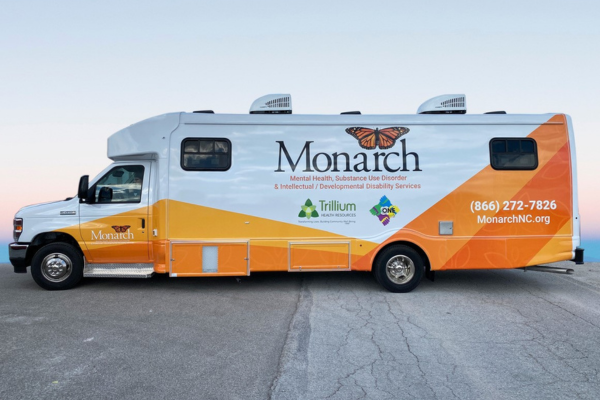
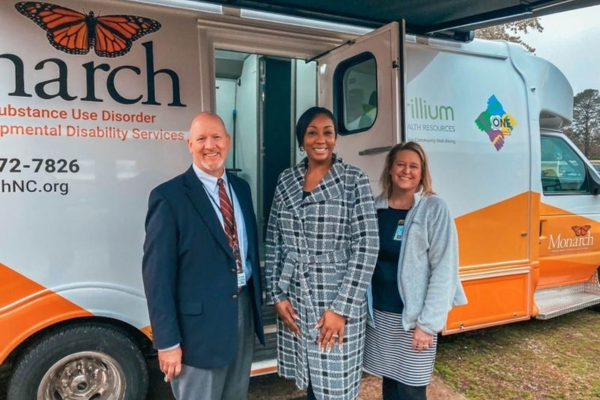
Monarch’s Mobile Integrated Care Clinic, developed in partnership with Trillium Health Resources, hit the road in mid-2022 to provide mental health and substance use disorder services in Gates, Halifax, Nash and Northampton counties in Northeast North Carolina. This area of the state is severely lacking in health care resources and this mobile clinic places important mental health services directly in the communities that need them most.
Pictured during a community ribbon cutting event are (L-R), Vice President of Operations, Outpatient Clinical Services Todd Posey; Executive Vice President and Chief Operating Officer, Behavioral Health Services Lyndril Leonard; and Vice President of Operations, Outpatient Administrative Services Lora Umberger.
Annual Impact
PEOPLE SERVED
MALE FEMALE
PEOPLE SERVED BY BEHAVIORAL HEALTH SERVICES

TELEHEALTH VISITS
PEOPLE SERVED BY LONG-TERM SERVICES & SUPPORTS

PEOPLE WHO RECEIVED RESIDENTIAL SERVICES
PATIENT ENCOUNTERS
COUNTIES SERVED
SITE LOCATIONS
Financial Summary
$51,771,444
$24,795,378
$137,740
$16,541,534
$75,409
$4,648,823
$4,064,907
$1,628,137
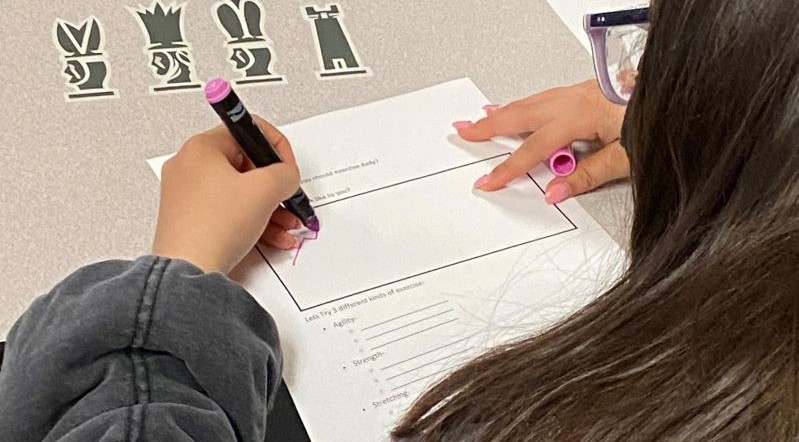
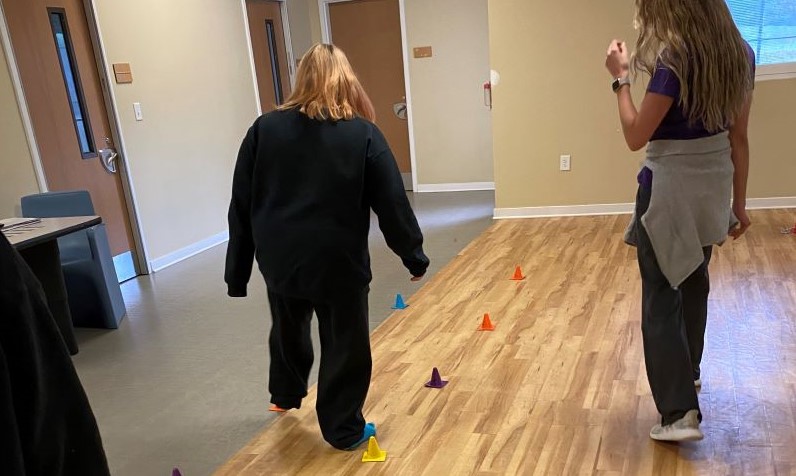
Monarch’s SECU Youth Crisis Center, a Monarch program, celebrated its fourth year of service in 2022. By incorporating occupational therapy, Youth Crisis Center (YCC) staff teach young people meaningful ways to manage daily skills, regulate emotions and navigate feelings. As the need for mental health support for young people continues to rise as a result of the coronavirus pandemic, the YCC provides a critical service.
Each year, philanthropic giving by Monarch donors shapes our programs and services. Individuals, businesses and philanthropic foundations give of their time and money, helping to strengthen existing programs and establish new ones. Monarch donors touch the lives of each of the more than 28,800 people we support, and we are grateful for their investment in our mission.
Total Philanthropic Giving in Fiscal Year 2021
Giving by Monarch’s Board of Directors:
100% Participation
Raised at Monarch’s Annual Dreams Take Flight Golf Tournament
Thank You To Our Community Partners







Monarch’s life-changing work across the state is possible because of dedicated community and business partners including:

Mona Whiting Finds Mental Health Support Through Therapeutic, Collaborative Approach
Mona Whiting (pictured above Residential Team Leader Omar Polk) is looking forward to living independently again. In anticipation of that day, she has started to accumulate household supplies like dishes, pans and a microwave.
Pursuing independent living is important to her and one of the goals she is working toward. She also works on her recovery, helps out others in her life and enjoys the company of friends. She has hope for her future.
Mona is a resident at the Windermere Home in Kannapolis for people with severe and persistent mental illness. She attends a local day program for adults, RHA Health Services in Concord. She meets regularly with Monarch Medical Director Dr. Robert McHale, M.D., M.Sc., DFAPA, ABPM, FASAM, for medication management. This team of supports help her to better cope with and navigate mental illness.

New Horizons Snack Shop Offers Snacks and a Smile
Brittany Green (pictured center) is learning valuable job skills as well as how to efficiently run a business – all the while, making friends along the way.
Green, along with Courtney Hartman, are the staff at New Horizons Snack Shop (NHSS), a Monarch program through the New Horizons Enterprises day program for adults with intellectual and developmental disabilities (I/DD) located in Mocksville.
NHHS is located within the Davie County Government Center, home to the Davie County Sheriff’s Department and Health and Human Services in addition to other government offices. NHSS occupies a retail location off the Center’s main entrance offering customers a quick snack, coffee, beverage, popcorn, candy selection or baked good.
NHHS is just one example of how Monarch helps develop meaningful employment opportunities for the people we support.
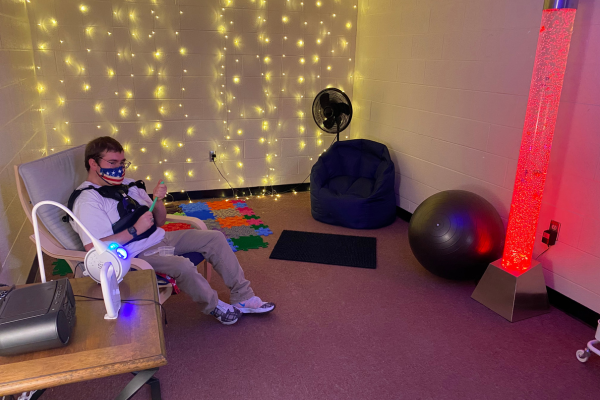
Calming Sensory Room Offers Respite at SIS Day Program
Soft, twinkling lights line the back wall. The soothing sound of bubbling water ripples against colorful lights in a tall tower. Stanly Industrial Services (SIS) day program’s newly created sensory room is having a calming effect on both staff and people supported.
Occupational Therapist Amy Grout, OTL/R, who submitted a request for an internal Monarch grant for $2,500 to fund the project, has been pleased with the response.
The sensory room is situated off the main hall where attendees gather to socialize, play games and create artwork. Once inside the room, that was formerly Grout’s office, a quiet, relaxing haven awaits. Grout, working as an occupational therapist at SIS, spends almost all of her time interacting and not in an office, which she thought could be better used in a way to assist people supported.

Through COVID, Meadowview Finds Strength in Each Other
Everyone has a different idea of what a hero is or looks like. In the movies, some heroes wear capes, save people from dangerous situations and keep them safe. The direct support professionals (DSP) are the heroes at Monarch’s Meadowview group home in Wingate, southeast of Charlotte in Union County.
Meadowview group home, a red brick ranch style home on a quiet, tree-lined street, is currently home to five residents. It is an intermediate care facility (ICF) for adults with intellectual and developmental disabilities (I/DD).
DSP Kathy Reid (pictured above) served as interim residential manager during the peak of the pandemic lockdown in spring and summer 2020. She shares what it was like to care for and grieve after two Monarch residents passed away due to contracting COVID.
Meadowview’s staff and residents showed resilience and compassion as the pandemic wore on and found strength in each other.
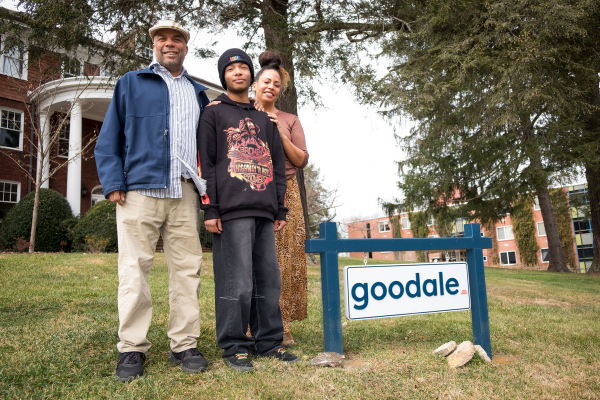
First Student Completes The Goodale School’s Program
“I am coming out of The Goodale School much happier and healthier than I was going into treatment in the first place,” Leo Montag said as he successfully completed a 10-month stay at The Goodale School and Recovery Community.
Leo (pictured above with his parents) completed the program in December 2021. The Goodale School is Monarch’s therapeutic boarding school model of care that combines comprehensive clinical support for substance use and co-occurring disorders with an accredited academic program, family support and a variety of health, wellness and recreational activities to create an individualized recovery experience.
As he completed the program, Leo had advice for his peers and their families on making time at Goodale successful. Click below to hear what he had to say.
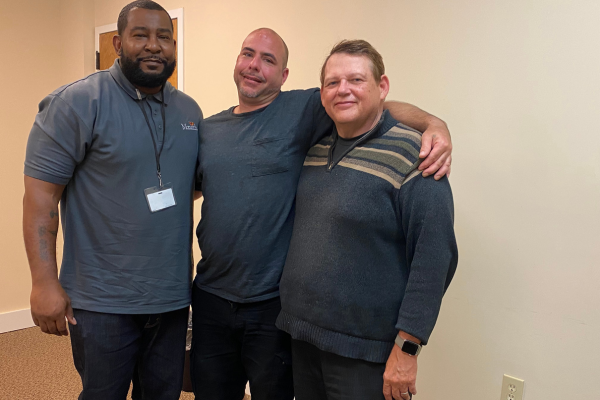
Keith West Finds Renewed Optimism through MAT Program
Keith West has a new outlook on life. He wakes up optimistic at what each new day holds.
A dependence on a controlled substance in combination with family health problems, the isolation of the pandemic and loss of employment made a positive outlook virtually impossible. He tried many times to pursue recovery.
Today, Keith is under the care of Monarch’s Certified Community Behavioral Health Clinic (CCBHC) in Albemarle and regularly sees Dr. Robert McHale, M.D., M.Sc., DFAPA, ABPM, FASAM, medical director for the CCBHC and Long-Term Services and Supports; Marcus Berry, addiction peer coordinator; Brittany Cowan, licensed clinical addition specialist; and Debbie Miller, RN, nurse case manager. He participates in Monarch’s Medication-Assisted Treatment (MAT), which uses medications in combination with counseling and behavioral therapies to treat opioid use.
“I am thankful every day I can wake up and wake up with a positive attitude and enjoy life. Before when I would wake up, I dreaded the day. Now, I wake up and my whole mentality about life has changed based on all the classes and work that I have done. I love life. I look forward to life,” he says of his renewed outlook.

Naprice Cathcart Envisions a Future of Helping Others
Naprice Cathcart’s (pictured above) vision board is a vivid pictorial of the goals she has achieved and the ones that she remains laser-focused on reaching.
The future she envisions includes continuing mental health treatment, becoming a peer support specialist (PSS) and pursuing a college degree. She believes her journey to healing from mental illness and overcoming life struggles can help others in similar situations.
Naprice has received therapy and medication management through Monarch’s Mecklenburg Behavioral Health Outpatient Clinic in Charlotte since 2019 and received employment services from Monarch’s Individual Placement and Support (IPS) team in Stanly County starting in 2020.
“I heard about Monarch through social services . . . After an abusive marriage, I needed help to get the tools and get my self-confidence back. I knew Monarch helped people and I needed that help,” she recalls of reaching out for help three years ago.

Wake IPS Staff Help Emmanuel Thein Feel at Home
Emmanuel Thein (pictured above with Employment Support Professional William Purvis, left, and Employment Peer Mentor Marcilla Smith, right) moved to the U.S. in 1997 searching for a better life and to escape violence in his home country of Burma, also known as Myanmar.
A resident of Raleigh, he has found support and employment in his U.S. home. He has fulfilled dreams and is looking forward to the future and achieving more life goals. Searching for peace and healing, he has found it here.
Monarch’s Wake Individual Placement and Support (IPS) team has helped Thein secure employment and provided advocacy when needed. Employment Support Professional William Purvis and Employment Peer Mentor Marcilla Smith, CPSS, have worked in tandem to help Thein.
Prior to working with the IPS team, Thein was diagnosed with schizophrenia disorder, bipolar disorder and post-traumatic stress disorder (PTSD). While receiving Monarch’s behavioral health services, Thein was referred to the Wake IPS team for employment assistance.
“We work to overcome those anxieties and to identify where are the places that he has natural supports that will benefit him and overall help him reach the goals he has outlined for himself,” notes Smith.
In April, Emmanuel succeeded in an interview and was hired by a McDonald’s close to where he lives in Raleigh. Thein either walks or takes the bus for the 15-minute commute to work and typically works about 20 hours per week.
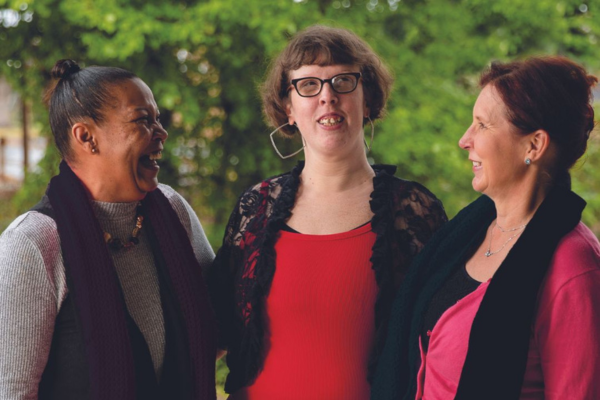
Care Management Ties Together Whole Person Care
Dancing isn’t the only goal Sierra Turner has on her list. There are lots of others as well. With the help of her Care Management team at Monarch, she is moving forward to find independent living options, pursue further educational resources and maneuver available transportation among other goals. She is bravely doing things she had only dreamed about and realizing that she possesses the skills to make her goals a reality.
Peer Support Specialist Rosa Bryant Pulley and Care Manager Christian Hinton (pictured above to Sierra’s left and right) are part of a support network for individuals like Sierra, who would like to navigate an independent life as well as connect with community, mental health or health care resources to overcome life challenges such as homelessness, pregnancy or mental illness.
The Care Management team, led by a care manager who coordinates services, works to identify health needs via a thorough assessment of a person seeking help. Following the assessment, the Care Management team develops a plan of care, with input from the person supported, to meet the needs identified. The care plan may include Monarch services, as well as incorporating programs from other community agencies.
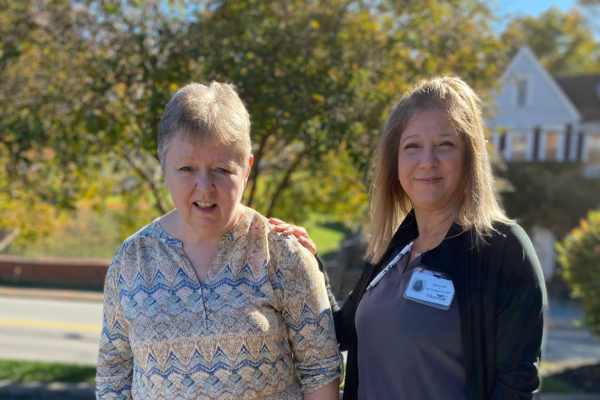
Care Management Assists Stanly County Resident with Maneuvering Life’s Obstacles
Robin Alcala has difficulty remembering what life was like before she began receiving Care Management services from Monarch.
However, she does appreciate, and enjoys sharing with others, how she is doing today. She feels healthier both physically and mentally, works at a fulfilling job and receives important health care services.
“I was pretty sick and I don’t really remember coming to Monarch at first,” Robin says of receiving services through Monarch’s Assertive Community Treatment Team (ACTT), a community-based group of medical, behavioral health and rehabilitation professionals who use a team approach to meet the needs of an individual with severe and persistent mental illness.
She has continued at Monarch as a patient receiving Care Management services through the Certified Community Behavioral Health Clinic (CCBHC) in Stanly County. She has benefitted from a team approach that addressed both her mental health and primary health from staff that included Medical Director, Long-term Services and Supports, Dr. Robert McHale, M.D., M.Sc., DFAPA, ABPM, FASAM; Behavioral Health Therapist Ana Liza Cisneros-Howard, LCSW, RPT; Director of Care Management, Behavioral Health, Debbie Miller, RN; Addiction Peer Coordinator Marcus Berry; and Care Manager Nicole Richardson.
This team approach is central to care management services. Services like the ones Robin receives are the foundation for Monarch’s preparation to become a Care Management Agency certified by the State of North Carolina as part of the state’s Medicaid Transformation plans.
Monarch’s team of more than 1,400 dedicated employees works tirelessly each day to
ensure the care and well-being of the people we support.
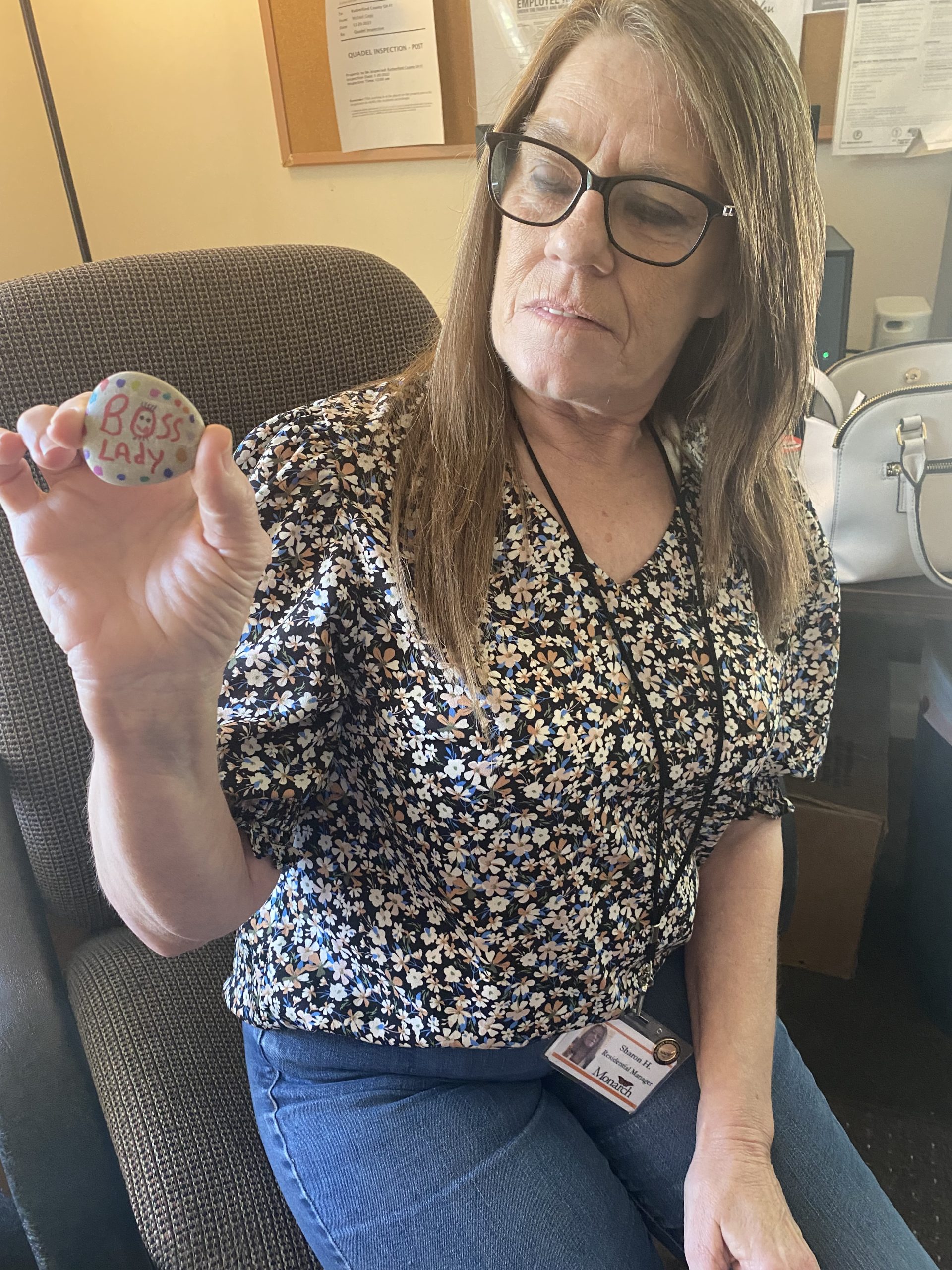
LTSS Residential Manager, Rutherford County
"Our mission statement is not just words, it is practiced on all levels. And, working with people with intellectual and developmental disabilities and mental illness is the best job. The reward is knowing that in some small way, when a personal goal is achieved, that you were a part of that success. "
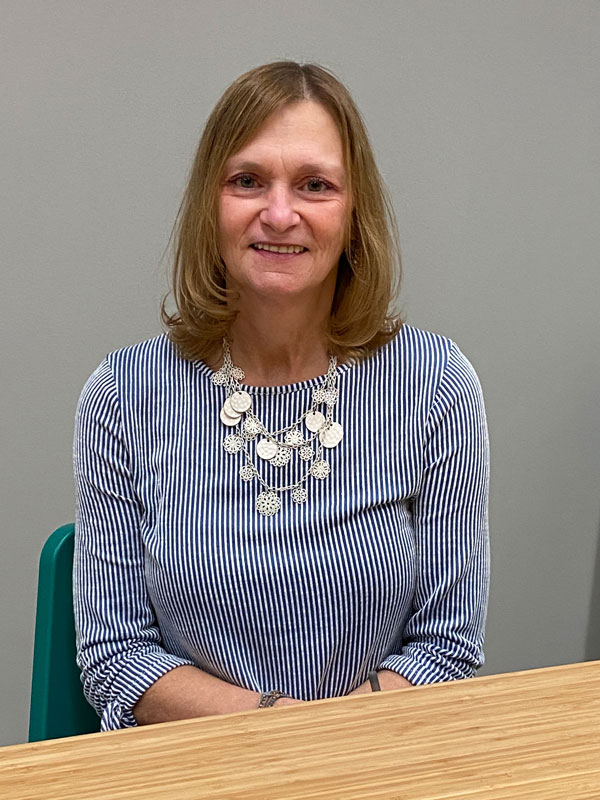
Behavioral Health Therapist
"I enjoy advocating for and promoting self-determination for people we support. It’s a great opportunity to work with people we serve so that they can accomplish goals in all areas of life. I enjoy meeting people where they are, as sometimes immediate needs are the most important things for them. It is rewarding to be able to work with people of all ages, all diagnoses, all psychosocial challenges and resource needs."
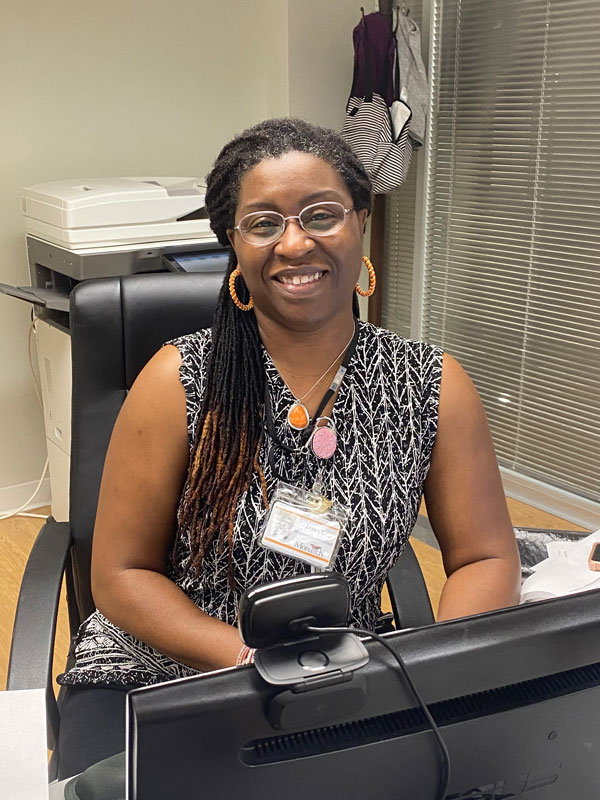
Administrative Assistant, Behavioral Health
"I love to see the people that we serve receive the help and services that they need. It is rewarding to see the progress that they make while under our care and being able to see our services working."
If you or someone you know would like to turn their compassion into a career at Monarch, please encourage them to visit MonarchNC.org/careers today.
Monarch advances in State of North Carolina's selection process for Care Management Agencies to provide integrated physical health care and behavioral health care services to individuals with serious mental illness, substance use disorders and intellectual and developmental disabilities.
Monarch launches ShopMonarch.org ecommerce site featuring the work of Monarch artists at our Studio 651 day program in Winston-Salem.
As COVID-19 vaccinations become available, Monarch requires staff to be vaccinated, excluding individuals with medical and religious exemptions.
Monarch completes its Joint Commission Triennial Survey and in February is awarded the Gold Seal of Approval from The Joint Commission indicating the highest standards in health care delivery.
Monarch achieved certification by the State of North Carolina as a Care Management Agency (CMA). This certification allows us to provide care management services to Medicaid beneficiaries with serious mental illness (SMI), serious emotional disturbance (SED), severe substance use disorders (SUDs), intellectual and developmental disabilities (I/DDs) and traumatic brain injuries (TBIs) who are served through the state’s Tailored Plans which are scheduled to launch on December 1, 2022.
Monarch a new psychosocial rehabilitation (PSR) program in Wilmington. Psychosocial rehabilitation programs provide opportunities for people living chronic mental illness to reach their optimal level of independent functioning and improve their quality of life.
Monarch’s new Mobile Integrated Care Clinic began providing services in Northeast North Carolina, visiting community locations within Gates, Halifax, Nash and Northampton counties. The clinic provides mental health and substance use disorder screenings and treatment, both on site and virtually. Medication-Assisted Treatment services will be added in the future.